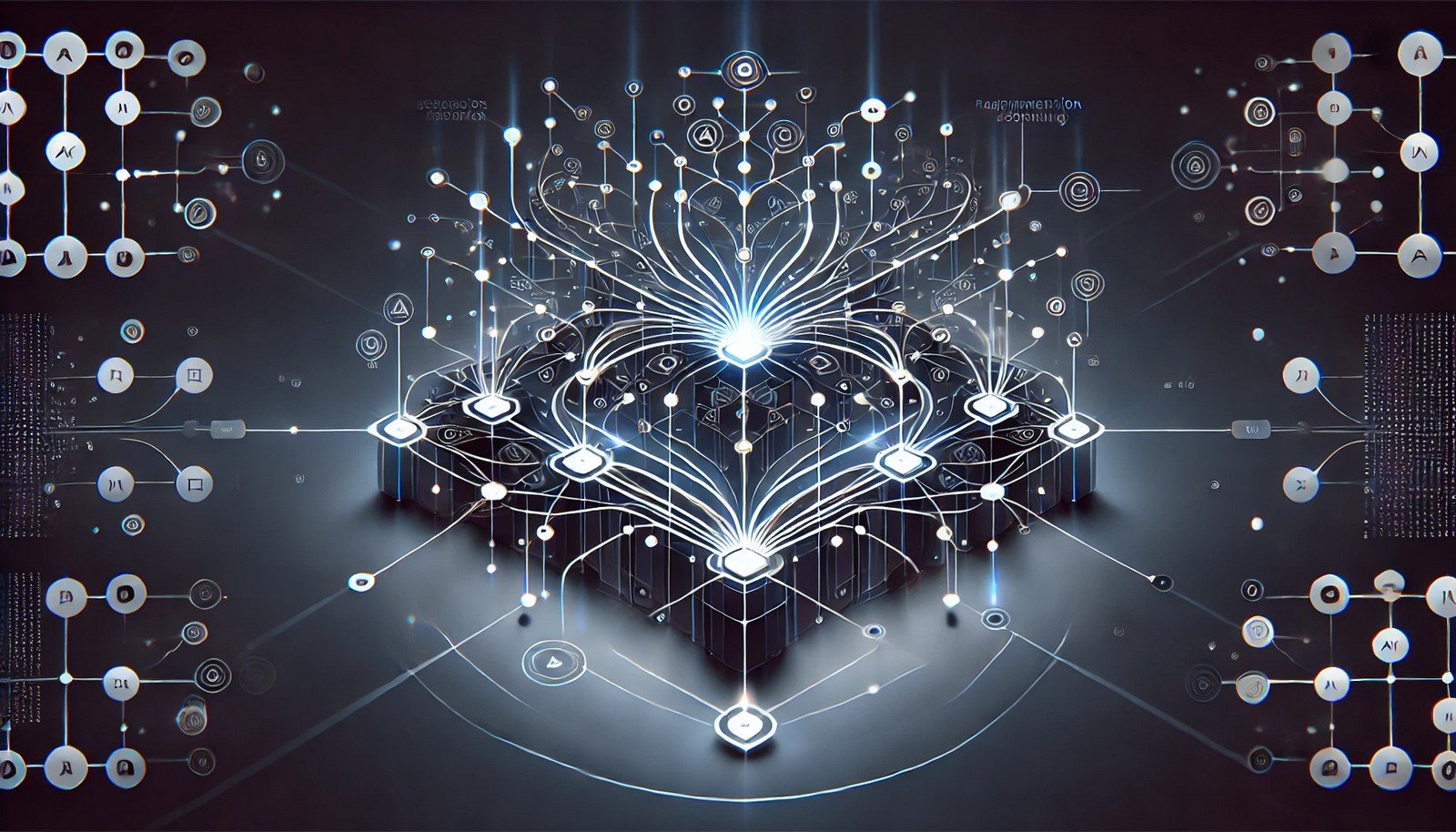Deep Q Networks

Quick Navigation:
- Deep Q Networks Definition
- Deep Q Networks Explained Easy
- Deep Q Networks Origin
- Deep Q Networks Etymology
- Deep Q Networks Usage Trends
- Deep Q Networks Usage
- Deep Q Networks Examples in Context
- Deep Q Networks FAQ
- Deep Q Networks Related Words
Deep Q Networks Definition
Deep Q Networks (DQNs) are a type of neural network used in reinforcement learning to make optimal decisions in complex environments. DQNs combine the principles of Q-learning with deep neural networks, enabling models to learn from high-dimensional sensory data, such as images, to predict rewards and actions. This combination allows an AI agent to learn policies that maximize rewards in uncertain settings, such as navigating a video game or controlling robotic movements.
Deep Q Networks Explained Easy
Imagine you're playing a video game where you need to collect coins and avoid monsters. The game remembers what moves you make to get more coins and stay safe. Deep Q Networks work similarly: they "remember" moves that bring rewards and "learn" the best actions to take, so they become better at winning the game over time.
Deep Q Networks Origin
The concept of Deep Q Networks originated from advances in deep learning and reinforcement learning, particularly at DeepMind, a Google subsidiary. In 2015, DeepMind introduced DQNs as a way to train AI agents that could play Atari games with human-level proficiency, marking a milestone in AI research.
Deep Q Networks Etymology
The term "Deep Q Networks" combines "Deep," referencing deep neural networks, with "Q Networks," rooted in the Q-learning algorithm, which assigns values (Q-values) to actions for decision-making in reinforcement learning.
Deep Q Networks Usage Trends
Since their inception, Deep Q Networks have seen widespread adoption in fields that require decision-making with minimal human supervision, including autonomous vehicles, robotics, and gaming. Due to their effectiveness in learning complex tasks, DQNs remain popular in both research and practical applications, and their usage continues to grow as AI technology advances.
Deep Q Networks Usage
- Formal/Technical Tagging:
- Reinforcement Learning
- Deep Learning
- Q-Learning
- Neural Networks - Typical Collocations:
- "Deep Q Networks in gaming"
- "DQN-based reinforcement learning"
- "training DQNs"
- "DQN models in robotics"
Deep Q Networks Examples in Context
- DQNs are used to train AI agents to play complex video games by optimizing their moves to maximize scores.
- In robotics, DQNs help machines learn to navigate spaces autonomously by rewarding successful paths and penalizing unsuccessful ones.
- Autonomous driving systems may employ DQNs to adapt their driving policies in various traffic scenarios, balancing safety and efficiency.
Deep Q Networks FAQ
- What are Deep Q Networks?
Deep Q Networks are neural networks used in reinforcement learning to enable AI agents to learn optimal actions for decision-making tasks. - How do DQNs differ from traditional neural networks?
While traditional neural networks focus on pattern recognition, DQNs learn through rewards, adjusting actions to maximize returns in dynamic environments. - Where are DQNs used?
DQNs are commonly used in gaming, robotics, and autonomous driving, among other fields requiring advanced decision-making. - Who developed the first DQNs?
DeepMind, a Google subsidiary, developed the first Deep Q Networks to master Atari games. - How do DQNs learn?
DQNs learn by associating actions with rewards and penalties, gradually improving performance through trial and error. - What are the advantages of using DQNs?
DQNs are beneficial for tasks with complex environments where traditional rule-based programming is ineffective. - Can DQNs be applied to real-world tasks?
Yes, DQNs are applied in fields like autonomous driving and robotics for real-time decision-making. - What challenges do DQNs face?
Challenges include requiring extensive training data, computational power, and fine-tuning to prevent overfitting. - Are DQNs suitable for small datasets?
No, DQNs generally need large datasets to train effectively. - Do DQNs work with continuous actions?
DQNs typically work with discrete actions, though modified versions can handle continuous action spaces.
Deep Q Networks Related Words
- Categories/Topics:
- Reinforcement Learning
- Deep Learning
- Neural Networks
- Decision-Making
Did you know?
In 2015, Deep Q Networks became famous for allowing an AI agent to play Atari games like Pong and Breakout at human-level proficiency. This achievement demonstrated the potential of AI in mastering tasks that involve strategic decision-making and real-time responses.
PicDictionary.com is an online dictionary in pictures. If you have questions or suggestions, please reach out to us on WhatsApp or Twitter.Authors | Arjun Vishnu | @ArjunAndVishnu

I am Vishnu. I like AI, Linux, Single Board Computers, and Cloud Computing. I create the web & video content, and I also write for popular websites.
My younger brother, Arjun handles image & video editing. Together, we run a YouTube Channel that's focused on reviewing gadgets and explaining technology.



Comments powered by CComment